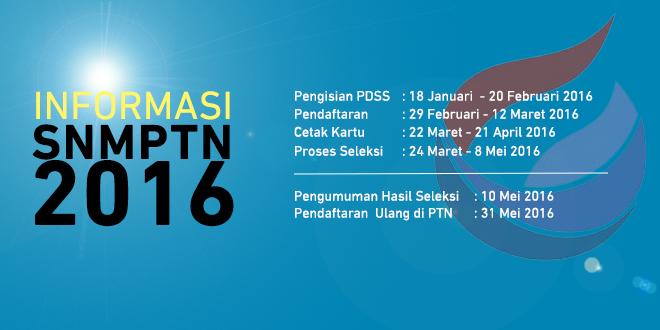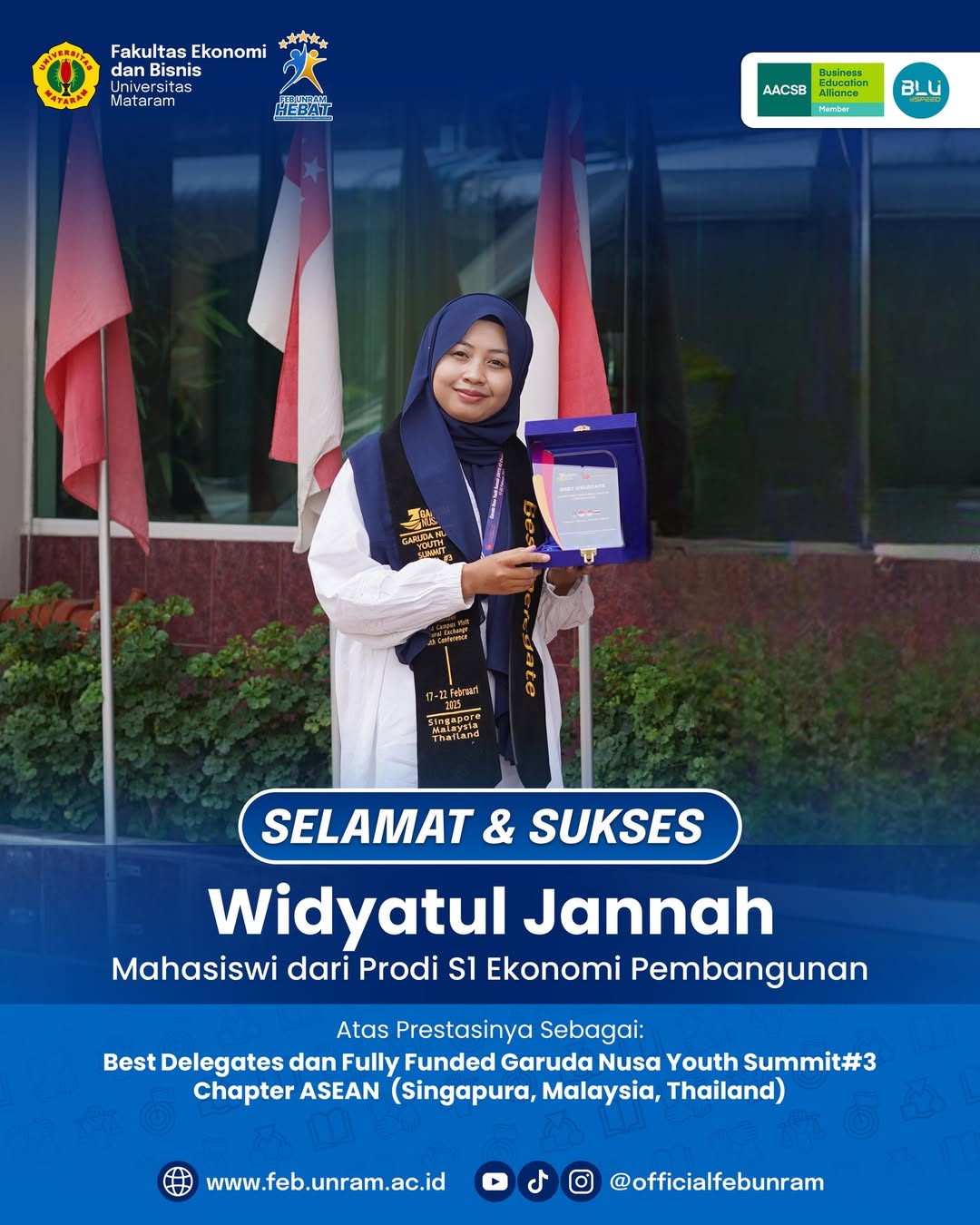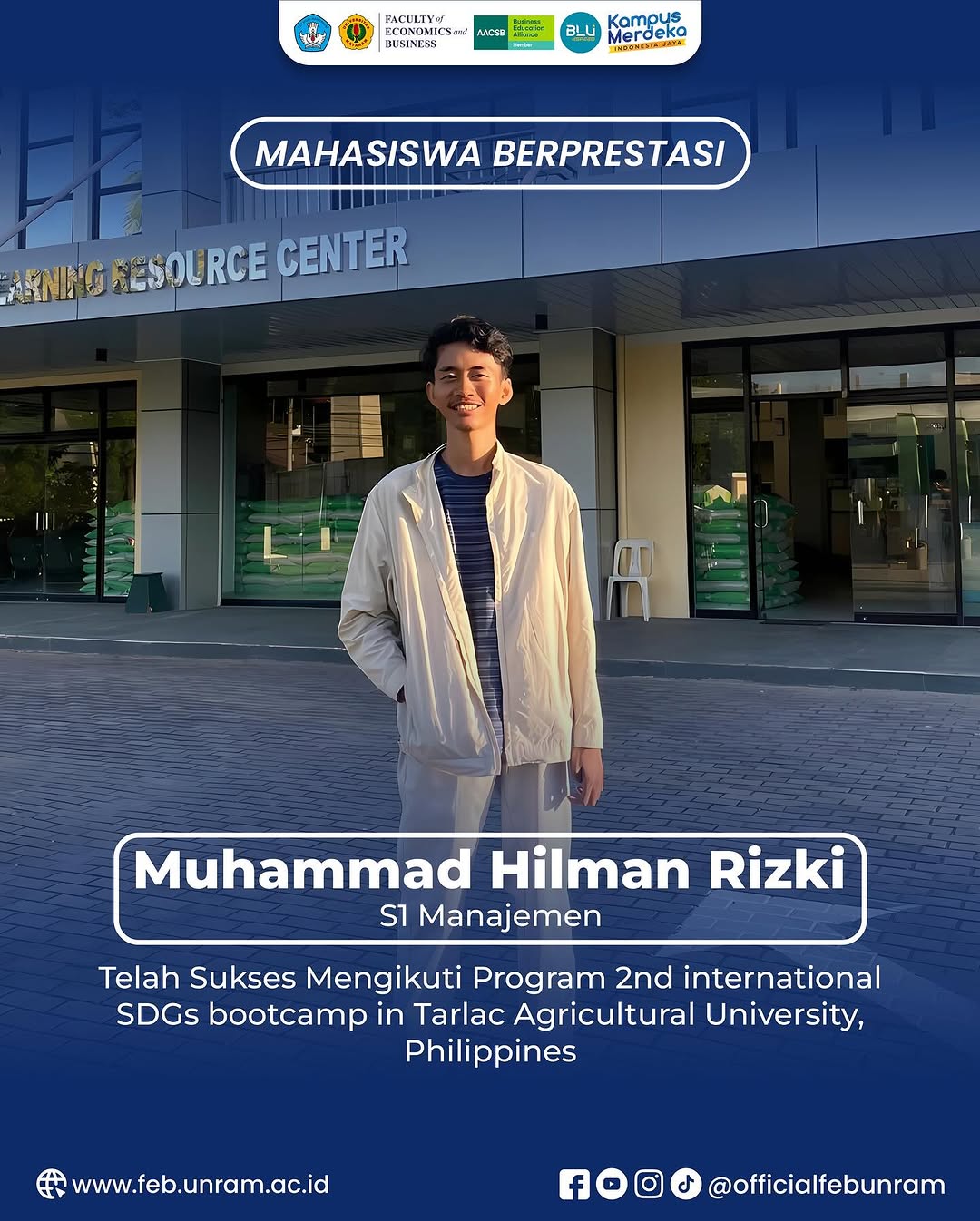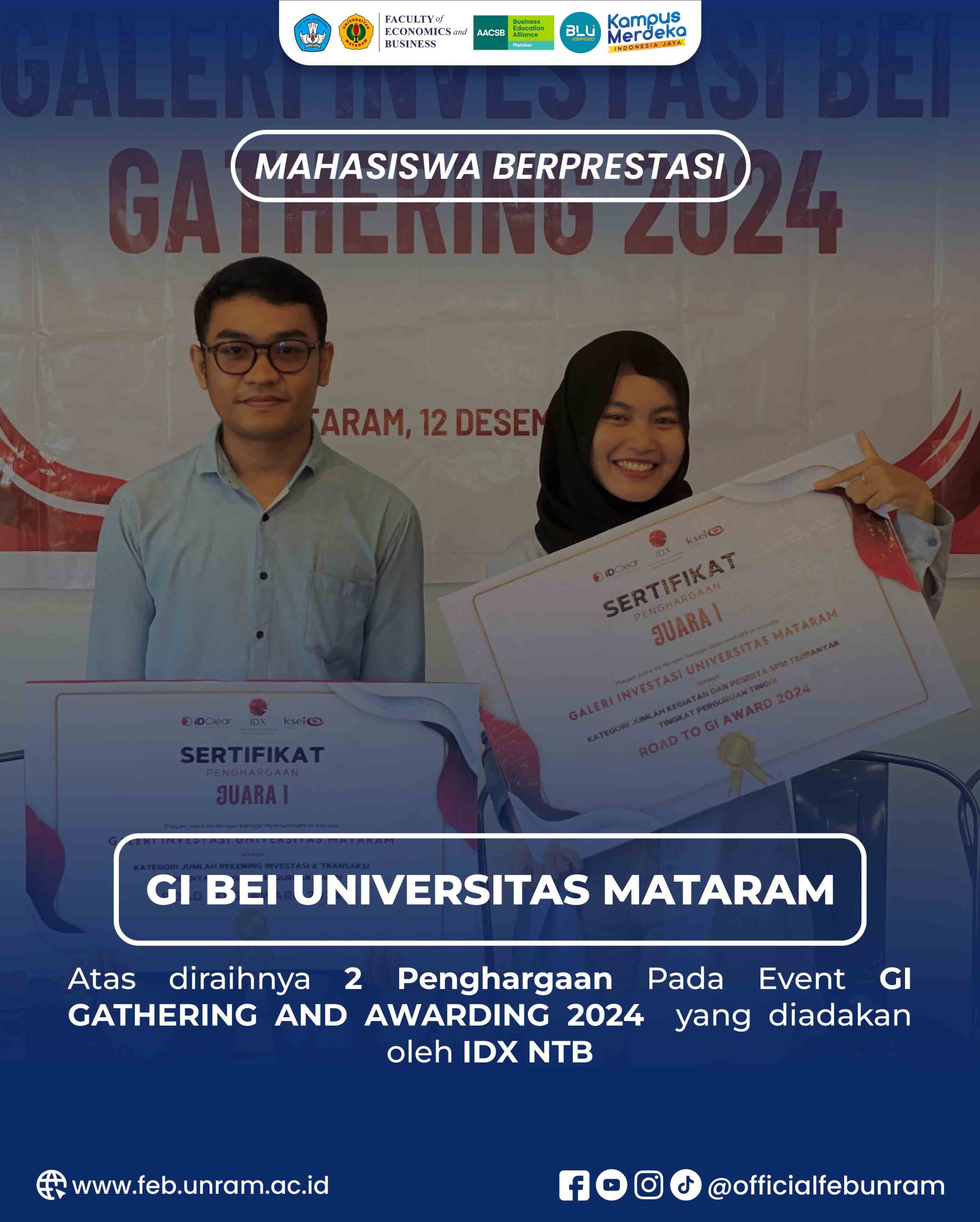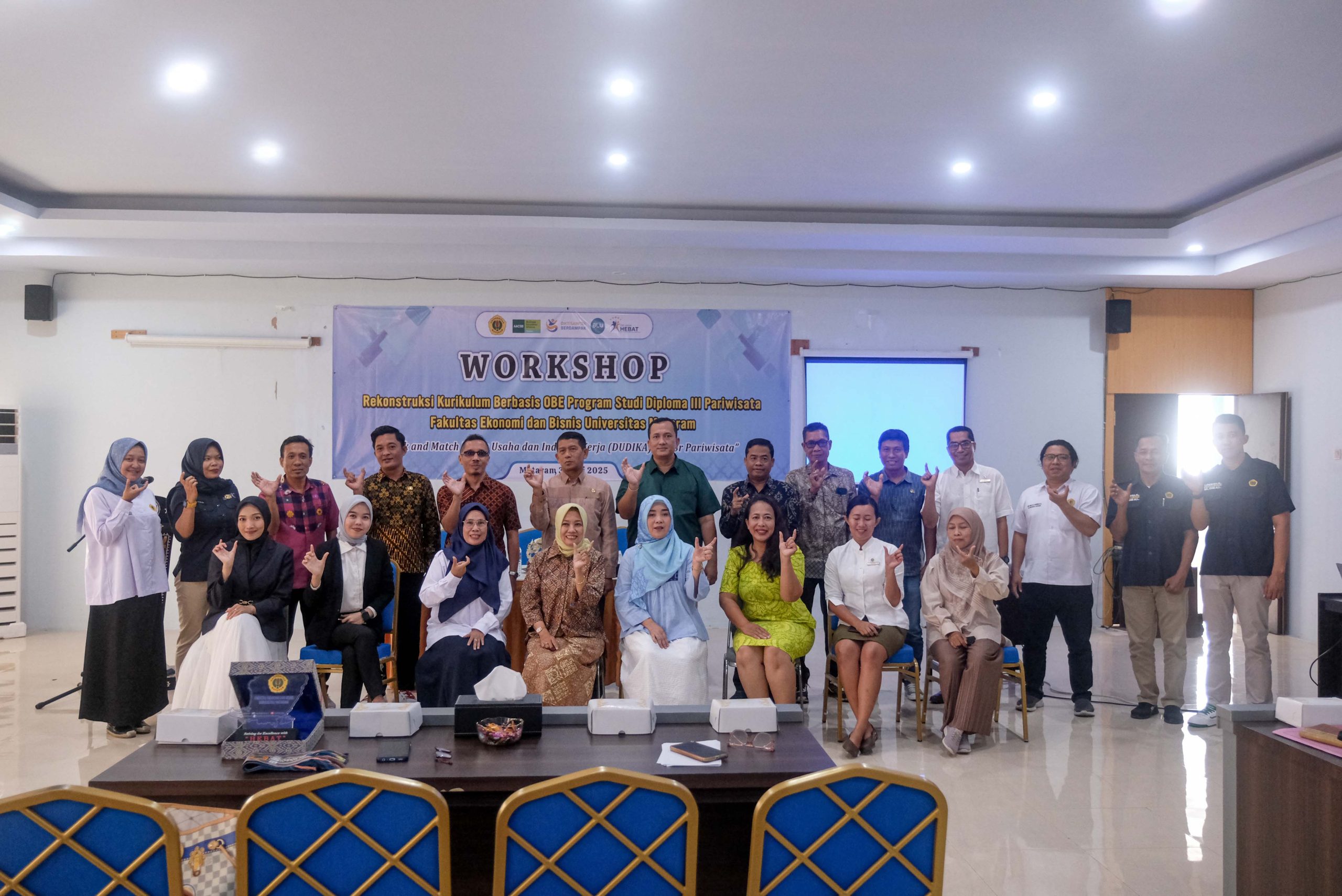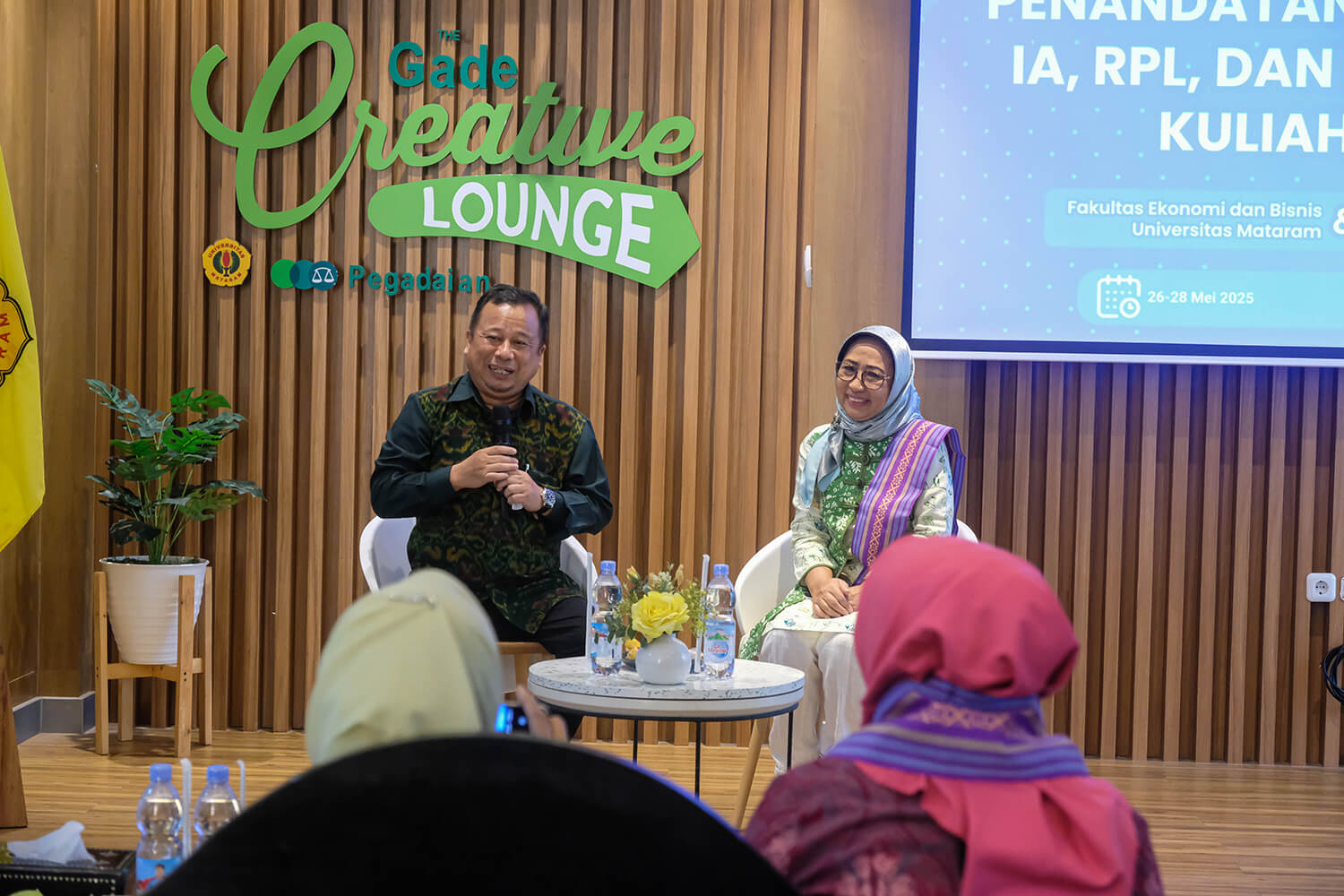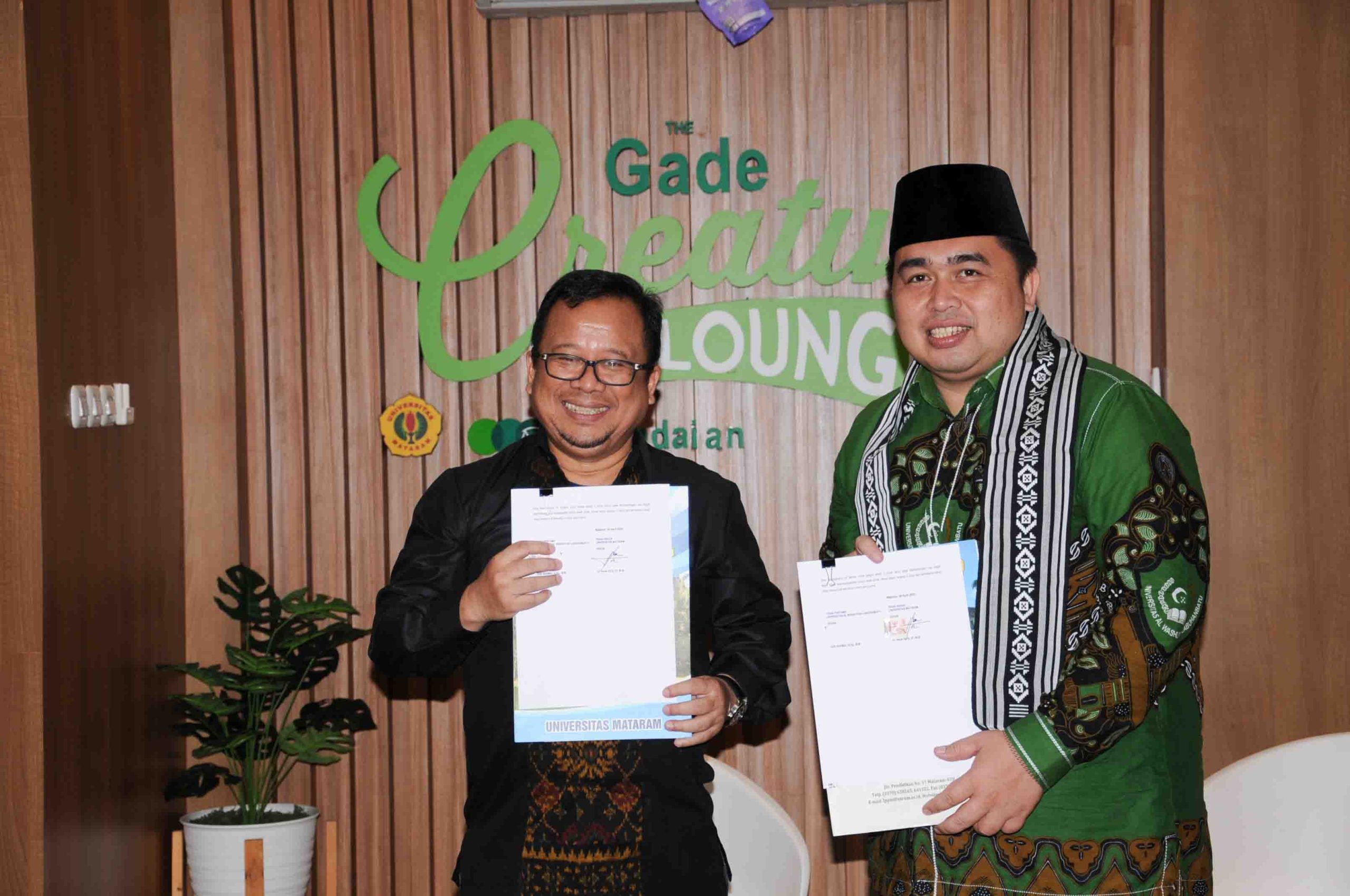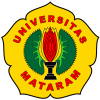National Seminar: Preserving Cultural Heritage Through Tourism and the Creative Economy
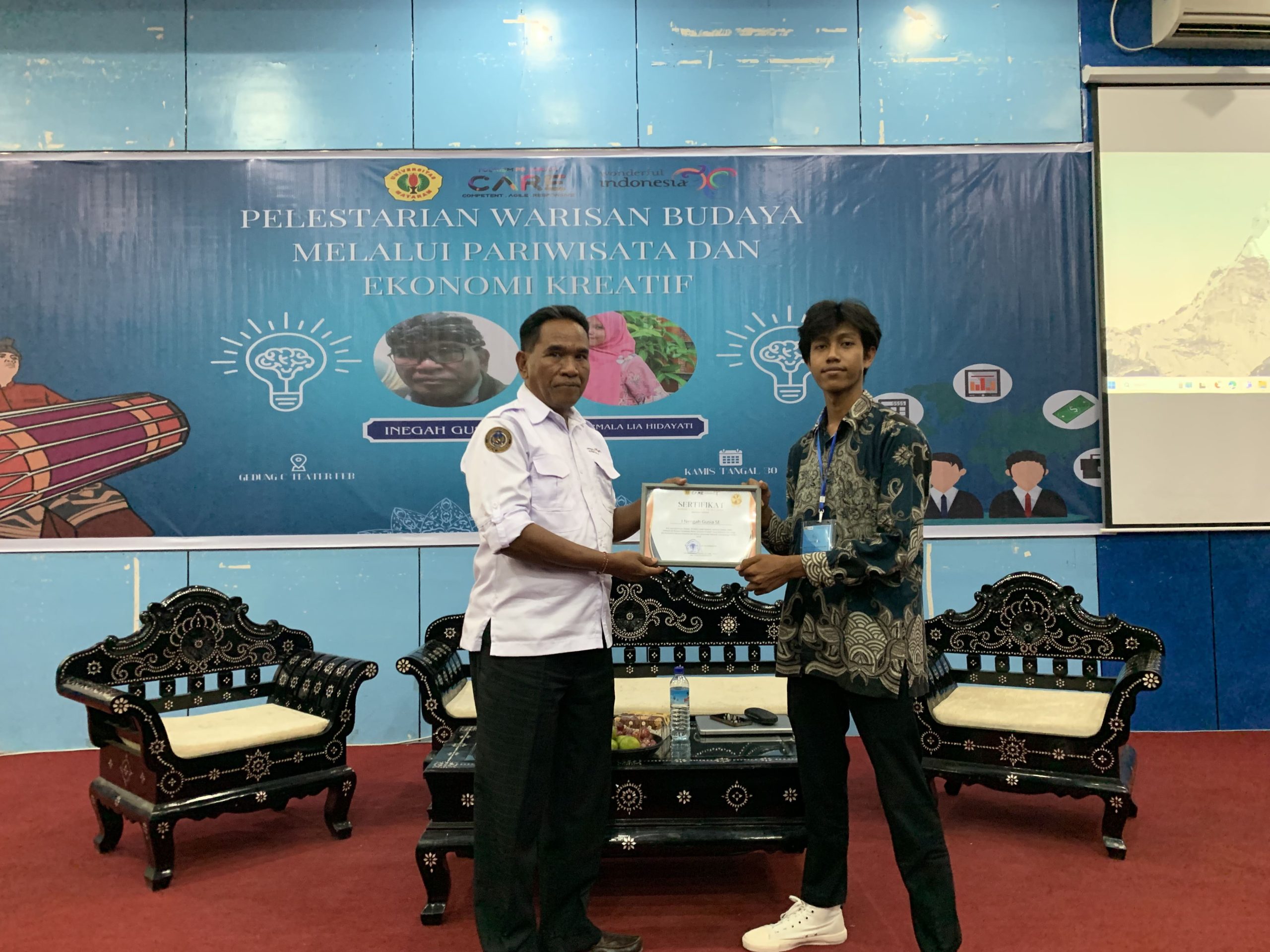
National Seminar: Preserving Cultural Heritage Through Tourism and the Creative Economy
Thursday, May 30, 2024 – The D3 Tourism Study Program at the University of Mataram held a national seminar entitled “Preserving Cultural Heritage Through Tourism and the Creative Economy” in the FEB Unram Theater Room. This seminar was organized by classes A and E Semester 2 of the D3 Tourism Study Program as an output from the MICE management course.
This event was attended by two prominent speakers, namely Mr. I Nengah Gusia, an Intermediate Expert Functional Planner, and Mrs. Nurmala Lia Hidayati, owner of PT. Bale Rattan Lombok. Both speakers provided in-depth views on the importance of utilizing tourism and the creative economy to preserve cultural heritage.
Creative Economy Overall, the creative economy has great potential to make a positive contribution to the economic, social and cultural growth of a country. Apart from that, the creative economy can also be a means of strengthening the cultural identity of a region or country. By promoting cultural heritage through creative products, the creative economy can help preserve traditions and strengthen a sense of pride in local culture. This provides opportunities for creative economy players to reach global markets and increase the visibility of their creative products.
Tourism and Creative Economy Development Policy The tourism development policy to support the creative economy aims to create links between the tourism sector and the creative economy which has great potential in developing a sustainable economy. In addition, this policy also takes advantage of the rich culture, arts and creativity and improves the country’s sustainable tourism infrastructure to increase the income of local communities and expand overall economic prospects.
Through this seminar, participants are expected to understand the importance of synergy between tourism and the creative economy in preserving cultural heritage. Apart from that, this event also provides insight into how policy strategies and best practices can be applied to optimize the potential of the creative economy in supporting sustainable tourism development.
Thus, it is hoped that this seminar can become a forum for academics, practitioners and the public to discuss and share knowledge in an effort to preserve cultural heritage through tourism and the creative economy. Stay up to date with the latest information regarding similar events to gain further insight and opportunities in the field of tourism and the creative economy.



